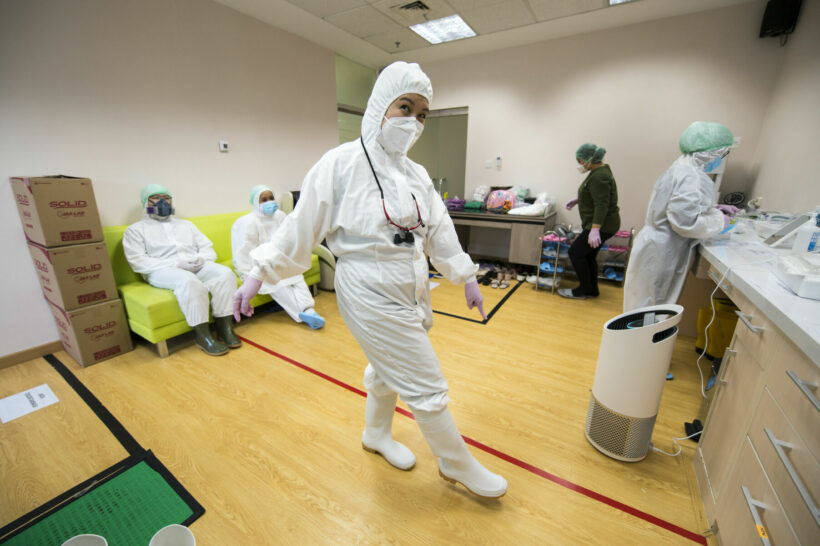Covid-19 Indonesia: Indian variant, reused swabs, holiday travel ban

Indonesia is experiencing an average of 5,000 new Covid-19 cases each day over the past week, and the Indian variant has now arrived as well. The Health Ministry confirmed this week that 2 patients had been infected by what has been identified as the B.1.617 variant of the Coronavirus, commonly known as the more contagious Indian strain. Indonesia is often somewhat of a sleeping giant as Asia’s third (and the world’s fourth) most populous nation but trailing India and China by about 1 billion people each. The country has seen 1.7 million Coronavirus infections and 46,496 fatalities due to Covid-19.
A recent scandal broke at Indonesia’s Medan Airport in North Sumatra as the employees at the state-owned Kimia Farma pharmaceutical company are accused of rinsing cotton swabs with alcohol and then repackaging them to be used for Covid-19 nasal swabs. Police suspect more than 9,000 people may have used these recycled swab kits which were sold to thousands of travellers.
The 5 employees have been fired for violating the health laws and consumer protection act, and the company may face civil lawsuits, especially if Covid-19 is spread through Indonesia because of the incident. Police are investigating if 1 employee built a new home using 1.8 billion Indonesian rupiahs (nearly 4 million baht) from the scam’s profits. 2 lawyers who may have used the swabs are already gathering victims for a class-action lawsuit seeking 1 billion rupiahs (about 2.2 million baht) per passenger.
Meanwhile, Indonesia faces a similar situation that caused Covid-19 outbreaks in Cambodia, Thailand, and Sri Lanka when people travelled on holiday and family visits for New Year’s holiday last month. Ramadan is coming to a close and millions of people traditionally travel to their hometowns to be with family for the Eid al-Fitr celebration. It is a Mudik holiday, which is one where people who have migrated away from their families return home to be together.
Indonesia banned all domestic travel between May 6 to May 17, but despite the Covid-19 spread, 7% of Indonesians, about 18 million people, said they were still planning on travelling for the holiday. The ban is more than just a cancellation of flights, train, buses, and ferries. It is a wide-sweeping edict that includes public and private journeys, so even motorcycles, personal cars, and private boats are forbidden to travel.
4,000 security personnel will be deployed to metropolitan Jakarta to enforce the restriction. 11,500 military personnel and 90,000 police officers are expected to be posted around the country, with about 155,000 people in total working to enforce the travel restriction.
The Indonesian government hopes that it can avoid further outbreaks for the country that already has the highest number of Covid-19 cases in Southeast Asia.
Read about the current Covid-19 situation in countries around South and Southeast Asia: Cambodia, India, Indonesia, The Maldives, Nepal, Sri Lanka and Thailand.
SOURCE: The Guardian and CNN
Latest Thailand News
Follow The Thaiger on Google News:


























